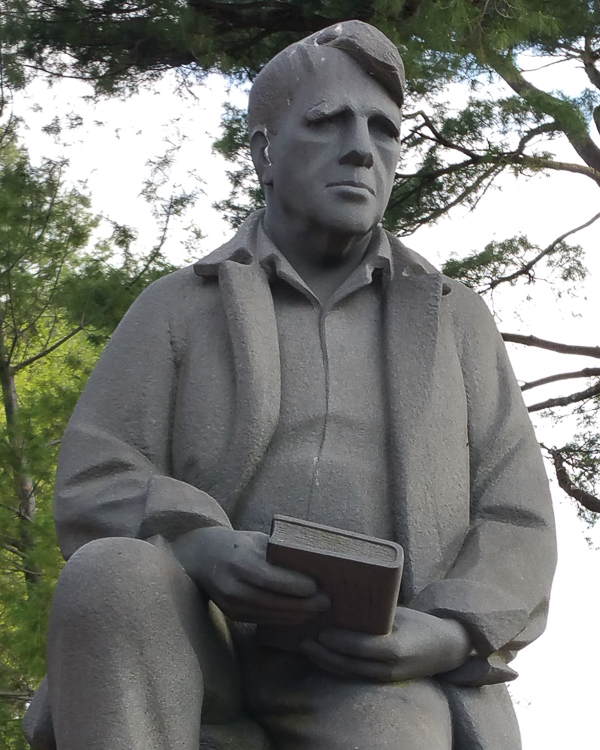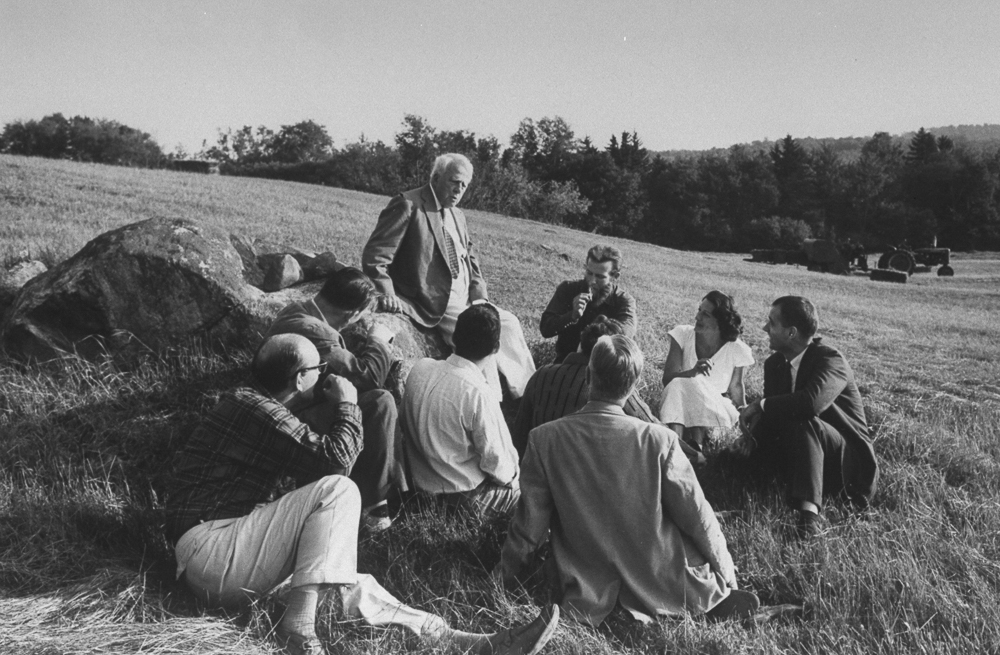There is an old Gaelic tale of the West Highlands called “The Brown Bear of The Green Glen” which has a whiskey bottle in it so definitively full that not a drop can be added, and so fabulously copious that nothing is lost, no matter how you drink it. Frost’s fame is like that bottle: it can’t be added to because it is full already, and it won’t draw down however it is drunk…
No one in my time upon this planet was so pursued by fame as Frost – so “publicized” in the specific sense and meaning of that word. But even now, months after his death, the “public image,” as the industry would call it, has already begun to change like the elms in autumn, leaving enormous branches black and clean against the sky.
Frost too, it seems, but in a different way, an opposite way, is “too intrinsic for renown” – too intrinsic for renown to touch. Something in the fame resists the flame as burning maple logs – rock maple anyway – resist the blaze. And what it is, I think we know. At least there is an evening, not many years ago or many blocks from here – an evening others in this room remember – which might tell us. It was his eightieth birthday. Frost had been in New York where every possible honor, including some not possible, had been paid him, and, returning here to Amherst and his friends, he fell to talking of what honor really was, or would be: to leave behind him, as he put it, “a few poems it would be hard to get rid of.” It sounds like a modest wish but Frost knew, as his friends knew, that it wasn’t. Poems are not monuments – shapes of stone to stand and stand. Poems are speaking voices. And a poem that is hard to get rid of is a voice that is hard to get rid of. And a voice that is hard to get rid of is a man. What Frost wanted for himself in the midst of all that praise was what Keats had wanted for himself in the midst of no praise at all: to be among the English poets at his death – the poets of the English tongue. ..It wasn’t reputation he was thinking of that wintry evening: it was something else. To be among the English poets is to be – to go on being. Frost wanted to go on being. And he has. 2
See the full text of MacLeish’s Convocation Address

